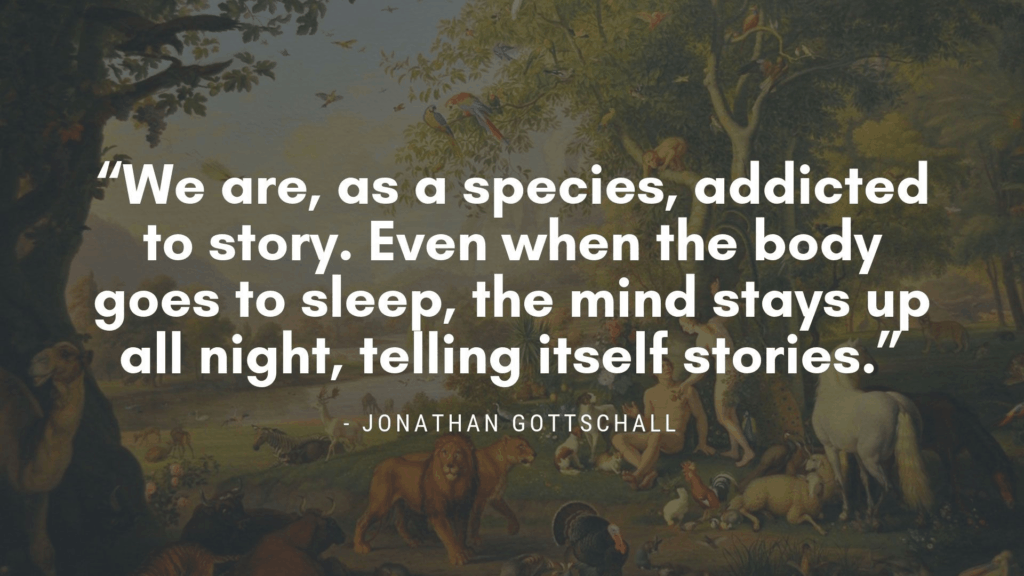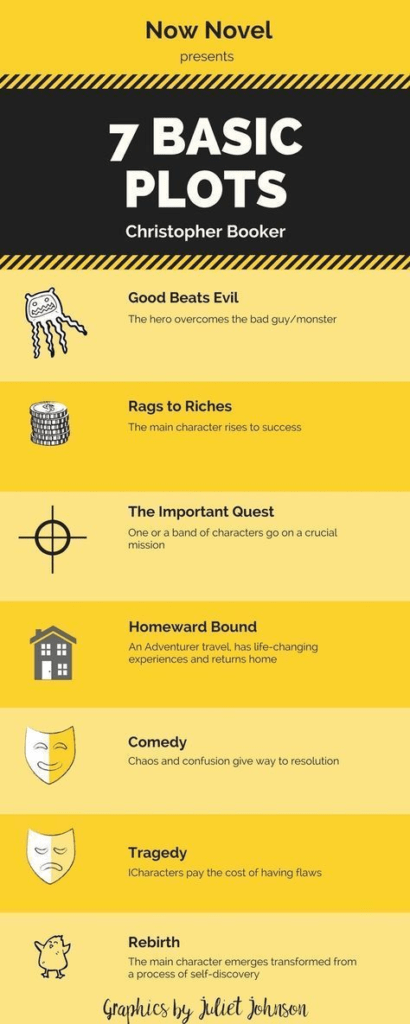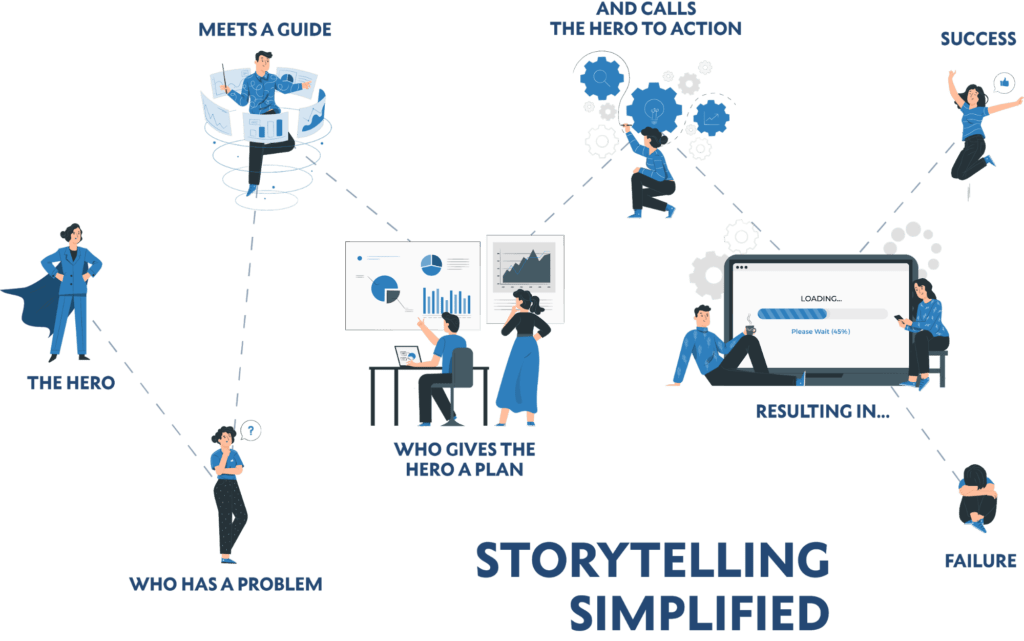Note on the text: Lexicon’s Founder & CEO, David Norcross, recently gave a special keynote lecture at Burapha University’s 14th National and 1st International Conference on Humanities and Social Sciences 2021. The theme of the conference was “Challenges of Humanities and Social Sciences in Digitalization: Flourish or Perish?” The audience included distinguished professors, administrators, and graduate students.
Instead of delivering a traditional in-person speech, David chose to pre-record his lecture and had Lexicon’s team add accompanying images and clips to the video in post-production. This was both to adapt to the hybrid, online-offline format of the conference, and to further his central argument that the Humanities and Social Sciences can have a greater impact on the wider society by embracing digital storytelling.
The text below is the transcript of David’s lecture (lightly edited for publication on Lexicon’s website).
Good morning, everybody.
Thank you to Burapha University for the kind introduction and for the opportunity to speak with you all here today on the Challenges of Humanities and Social Sciences, and if they will flourish or perish in the digital age.
I work for a digital marketing agency in Bangkok, so before engaging with any project, I try to get a good sense of the audience I am speaking to, their pain points, and the Big Idea behind whatever content campaign I am creating.
Accordingly, when I was invited to talk to you today, I wanted to speak with the Burapha team to try to understand why this event is being framed as an existential moment for the Humanities and Social Sciences.
The answer I was given was very interesting. It seems that Burapha University is playing a big role in the development of the Eastern Economic Corridor initiative, which is very good news in terms of both funding and prestige.
However, unfortunately, it seems that the majority of the funding for these projects at the moment is being allocated primarily to the Science and Technology faculties.
I guess this makes sense as there are a lot of big infrastructure development projects happening, which would explain why science and tech need to be involved so much in these preliminary stages.
But, I’m here today to tell you that humanities and the social sciences have the potential to play a very important role in the future – both in the EEC and beyond – if you are able to tell the right stories to the right audience.
But first of all, please allow me to tell you why I feel I am qualified to discuss this topic with you here today.
At one point, my life was on a very different trajectory and I was all set for a career in academia.
All of my qualifications are from this world: English Literature, Social Sciences, Education, and Linguistics gave me a passion for storytelling and understanding society and our place within it.
I also spent a few years on a PhD course studying the concept of Thainess: or in Thai – Kwan Pen Thai.
At that time, it seemed like my destiny was to become a professor. Yet, the PhD was derailed by complications in transferring my scholarship from the UK to Australia, as well as political problems here in Thailand.
For my PhD, I spent a lot of time in many locations around Thailand doing research, asking questions, and reading all I could find about Thainess in published literature and academic research.



As well as seminal works from key figures in social sciences from Foucault to Bordieu and from Chomsky to Piaget.


I very much enjoyed the more than 10 years I spent studying in the Humanities and Social Sciences, especially the research, writing, and peer validation.
However, I am here today to tell you that peer validation is not enough. Too often, Social Sciences and Humanities within academia are insular, engaging in a form of circular self-gratification.
To give you an example of this trend that really sticks strongly in mind – a book like Pierre Bourdieu’s Distinction is the ultimate example of this. It is a thick, heavy book written in an impenetrable register.


The whole message of this book boils down to the fact that your taste and social habits are defined by your access to privilege.
While it is undeniably true, the way it is presented ensures that the average person will never hear of Pierre Bourdieu. And if they were ever to open one of his books, they would be immediately scared off by the overly dense nature of – what is essentially – a universal truth that everyone would agree with.
To some degree, this book, written decades ago, speaks to academia in the pre-digital age. But to resonate today, a very different approach is needed.
For me, my academic career came to an end in 2014 and I found myself with a lot of time and mental energy on my hands.
I had been working as a writer and journalist to support myself during my PhD, so decided to try to monetize those skills by applying them to the newly developing world of digital marketing.
I formed my company, Lexicon, in 2015. Over the years, we have grown quickly from a one-man show to a company of over 50 people today encompassing a video production agency in Bangkok, Thailand, a creative design agency, digital marketing strategy, social media, and, of course, content writing.
While these may on first glance appear to be unrelated services, they are all connected by one key concept – Storytelling. Allow me to show you a little more of what we do.
Lexicon has used storytelling to grow from one person to over 50, and to have success working with many different types of clients.
I am here to tell you how the Humanities and Social Sciences are perfectly positioned to thrive in the digital age by using storytelling, too.
But first, please allow me to define storytelling and unpack it as a concept.
In Jonathan Gottschall’s book The Storytelling Animal, he re-defines Homo Sapiens as ‘The Storytelling Animal’.
Gottschall explains how everything humans do is a form of storytelling: From our concepts of nations and religions relying on narrative, linear form with clear heroes and villains, through to how we gossip and make sense of our own personal histories through stories, and even how we reorganize the events of our lives through narrative as we dream.


Given that stories are hard-wired into the human experience, they have proven time and again to be the best way to resonate with people of all social and national backgrounds.
Stories circumvent logic and tap into our primal instincts of curiosity, fear, love and empathy.
And who better to tell stories than the Humanities and Social Sciences? Who have a deep understanding of how humans are really behaving and what motivates us in every era.
In another book, The Seven Basic Plots, Christopher Booker explains how all stories throughout human history follow one of 7 basic plots.
These basic plots cover ancient myths from all nations, cultures, and languages throughout recorded history.
And the same basic plots our species were using 3,000 years ago are still being used today.
For example, the ‘Rags to Riches’ archetype encapsulates Cinderella, Dick Wittington and Pretty Woman, as well as the Ugly Duckling and thousands more familiar stories.


In the same way, Joseph Campbell’s The Hero’s Journey monomyth lays the foundation for almost every adventure story, from the Buddha’s enlightenment, to the Odyssey through to Gilgamesh, Beowulf, The Lord of the Rings, Star Wars and The Hunger Games.
The structure of all of these stories is that a hero with a normal life meets a guide, goes on a journey, faces temptation and challenges, overcomes them, defeats a literal or metaphorical monster and returns home as a hero with a new equilibrium.


The 7 basic plots and hero’s journey structures are so universal that we barely even notice them underpinning so many of the classic stories we know by heart.
But that storytelling structure is always there, built into the DNA of a 3-act structure – the same way that the Introduction, Body, and Conclusion form the 3-act structure of an academic essay.
It was my time studying in the Humanities and Social Sciences that gave me my passion for trying to understand how humans behave in society as well as for trying to engage with them through narrative.
And at Lexicon, I have tried to combine this passion with a modified version of the hero’s journey in all of the creative work we do for our clients and for ourselves. This enables us to effectively connect with our target audience, and ensures that we can help our clients to do the same.
This 7 step process starts by identifying THE HERO.
What is important to understand here is that you are not the hero.
Social Sciences and Humanities are not the hero.
Your audience is the hero.
In marketing terms, the hero is a Buyer Persona. In order to tell the right story to them, We need to think about their demographics – age, nationality, location and interests.
As well as their pain points, concerns and needs – and the questions they have about what your business does and any doubts they may have.
In classical storytelling, the hero at the start of their journey is naive. They don’t know that they are about to go on a journey. They often don’t even know they have a problem.
Think of Luke Skywalker at the start of Star Wars for a classic example of such a hero.

The next part is where you come in – THE GUIDE. The guide is the most important character in the story. They are the person that helps the hero to self actualize by calling them to action and helping them to fulfil their potential.

The guide has authority from having been on this journey many times before and has overcome all of the challenges that the hero is yet to face.
But most importantly of all, the guide has empathy. They know how to communicate with the hero in language the hero can understand. Classic guides include Obi-Wan Kenobi from Star Wars, Gandalf from the Lord of the Rings, the Genie from Aladdin, Hamish from the Hunger Games, and perhaps me today.
All joking aside, the Humanities and Social Sciences have all the authority in the world.
Through data gathered from ethnographic research, groundbreaking theories, and millions of weird and wonderful PhD topics ranging from the impact of Soap Operas on housewives to the effect of economic expansion on traditional communities.
What is all-too-often lacking is your hero. So often within the Humanities and Social Sciences, we are speaking to ourselves. But, if we want to have a broader appeal, we need to identify our target audience beyond our comfort zone so that we can craft stories that resonate more broadly.
The remaining 4 steps in the Lexicon storytelling formula are about calling the hero to action and getting them to take action. These actions may mean donating to a charity through a website donate button or may be engaging with a luxury car brand through Facebook.

The process works for all industries and with all audiences as it puts the consumer at the centre of the story.
So what action do YOU want YOUR hero to take?
If we look around the world, we can see many successful examples of people from the Humanities and Social Sciences applying academic theories through popular media.
Malcolm Gladwell has made a career out of pop sociology by applying incongruous research and data points with narrative storytelling, then packaging them in a way which provides practical insights into the lives of the masses.

Steven Pinker is another scholar who has achieved mainstream recognition for his work. In books like The Better Angels of Our Nature and Enlightenment Now, he uses social science data to make compelling arguments about the general improvement of the human condition throughout history. These books are as research heavy as any scholarly work, with hundreds of notes and citations, but he writes in a manner that is accessible and, just as importantly, entertaining for a general audience.

In a local context, Dr. Larry Persons does an excellent job of explaining anthropology in an engaging and easy to understand way.
Dr. Persons here is talking to both Thais and expats making them the hero. He is breaking down the ever-present concept of Greng Jai that most people take for granted and rarely address. He is providing a gateway drug into the world of sociology. He is truly acting as a guide.
So who is your hero?
I was invited here today with one eye on the EEC and how funding is being allocated primarily to science and technology.
With the emergence of the EEC will come all sorts of other issues and opportunities – cultural, societal, and linguistic. These issues present you with innumerable potential heroes to guide, if you can find the right story to tell.
For example, like the EEC, Thailand 4.0 is another major initiative being pushed by the government that supposedly presents a blueprint for Thailand’s technologically-advanced, interconnected future.
However, not everybody is convinced that Thailand 4.0 is going to succeed.
Allow me to return back to Dr. Larry Persons for a moment. Dr Persons has a PhD in Intercultural Studies and published his research findings in the seminal book The Way Thais Lead.

His book is a fantastic example of applying theory, and it has helped me immensely to understand the business landscape in Thailand. Yet, the book is not just for foreigners. It is full of rich insights into the hierarchical power structures of Thai society. He unpacks concepts like Kiat, Na Ta, Bunkun and Barami and gives rich, easy-to-understand examples combining his research with his own theories and backing it all up by building on the prior research of others – all very much academic best practice.
However, Dr. Persons isn’t just resting in the classroom and in the library. As well as lecturing at Sasin, he is a practicing business coach and keynote speaker.
At the moment, his core storytelling is focusing on Thailand 4.0: Specifically how Thailand 4.0 is going to be impossible without a shift towards Thai Values 4.0.
By this he means that the people of Thailand will need to reexamine many of their cultural norms to identify which of these are beneficial and which may be holding the country back. Some aspects of Thai culture – the importance of social hierarchies, the concept of ‘face’, and an aversion to voicing criticism, just to name a few – may need to be updated if Thailand is to play a more prominent role on the regional and global stages.
Dr. Persons has all the authority in the world from his academic and practical experience and his doctorate, as much as from his impressive client list.
However, where Dr. Persons shines is by using storytelling to develop a strong personal brand and position himself as a guide by regularly explaining his concept of Thai Values 4.0 through memes, articles, podcasts and videos, all amplified effectively to his target audience through social media and online channels.
Recently, Dr. Person has been talking about how Netflix and their No Rules Rules Culture could be applied to Thailand.

Netflix famously has few operational rules as an organization. They trust their staff to act in the best interests of Netflix. There are no rules on expected working hours, expenses for entertaining clients, or for time tracking. To achieve these outcomes, Netflix focuses heavily on ensuring high talent density in the organization and encourages an open culture of direct feedback and candor, even to the CEO.
I recently had the chance to sit down with Dr Persons on my own Bangkok Thought Leaders podcast to discuss how the Netflix culture aligns with his own research.
What I love about Dr. Persons’ work is that he is taking his research beyond the lecture hall. Too often, great ideas stay inside the Humanities and Social Sciences because we don’t know how to translate them to the broader culture.
Dr. Persons makes me a hero of his stories and I keep coming back for more. By framing his messages in a digitally savvy way and adapting them to the real-world problems faced by his target audience, Dr. Persons is able to translate his authority in a way that shows empathy to his audience. As a result, he resonates.
So, as you move forward, try to identify your HERO and think about ways you can use your authority to show empathy to guide this hero.
Is your hero Chinese business people investing in the EEC?
Is it Thai or foreign governments?
Is it potential students?
Whoever your hero is, you need to connect with them on their terms, and in the digital age, that connection is likely to be online. So, develop your personal branding and brush up on the essentials of storytelling.
You may want to partner with existing online platforms or even to develop your own. But to connect with your HERO, you are going to have to find out where they congregate and then speak to them on their terms.
There are infinite storytelling opportunities in the humanities and social sciences. If you can tell these stories well, you will flourish in the digital age.
Thank you for your time today.